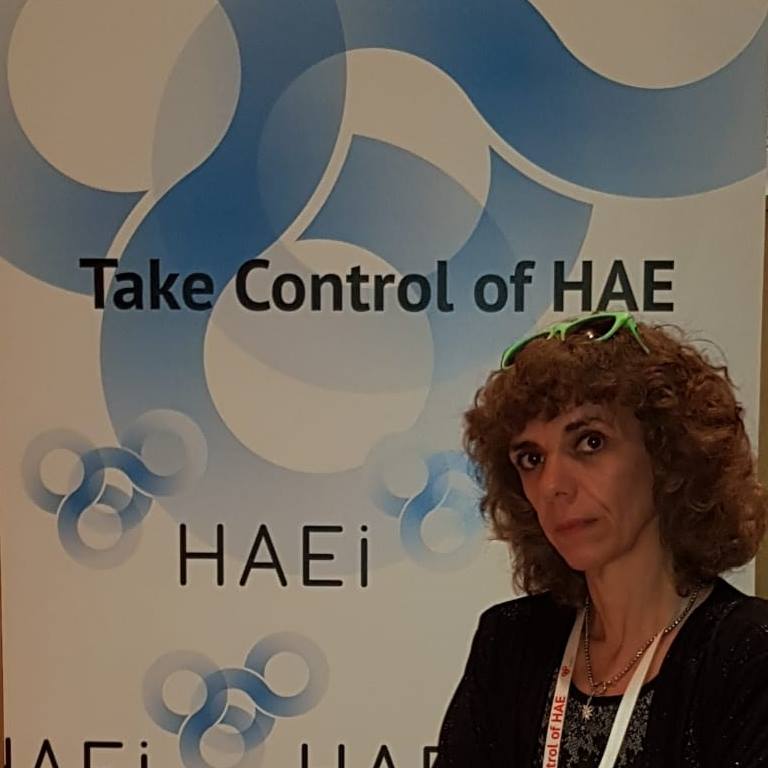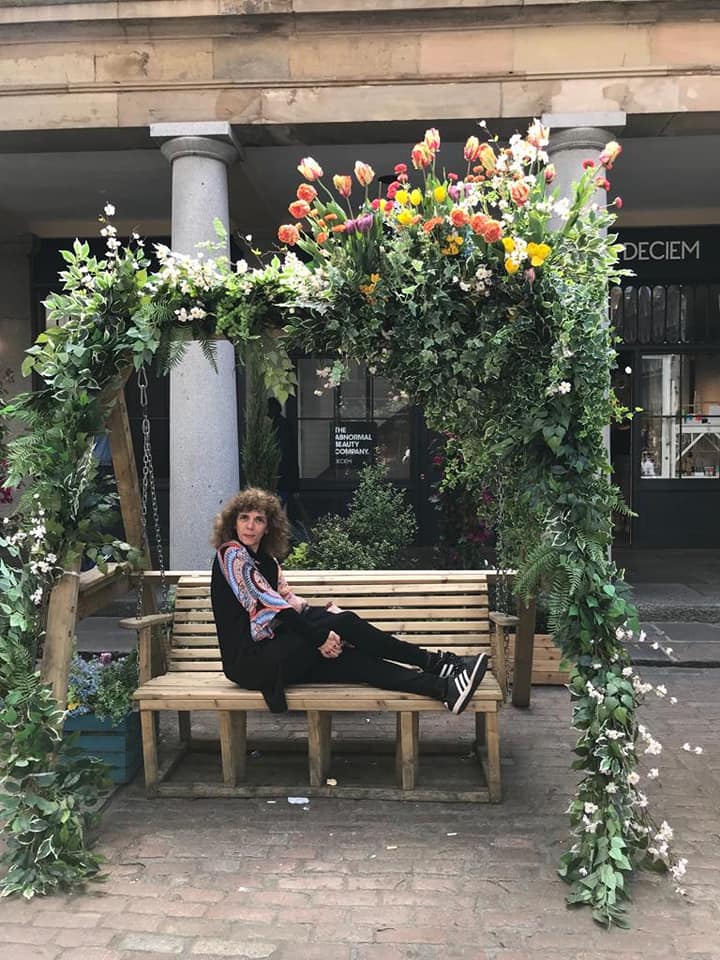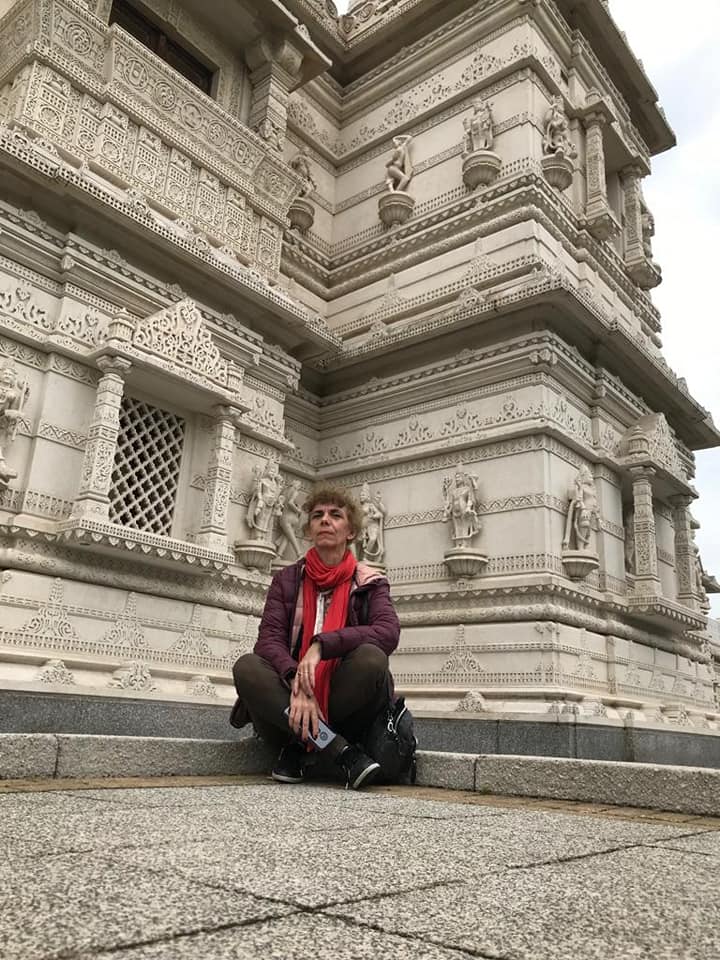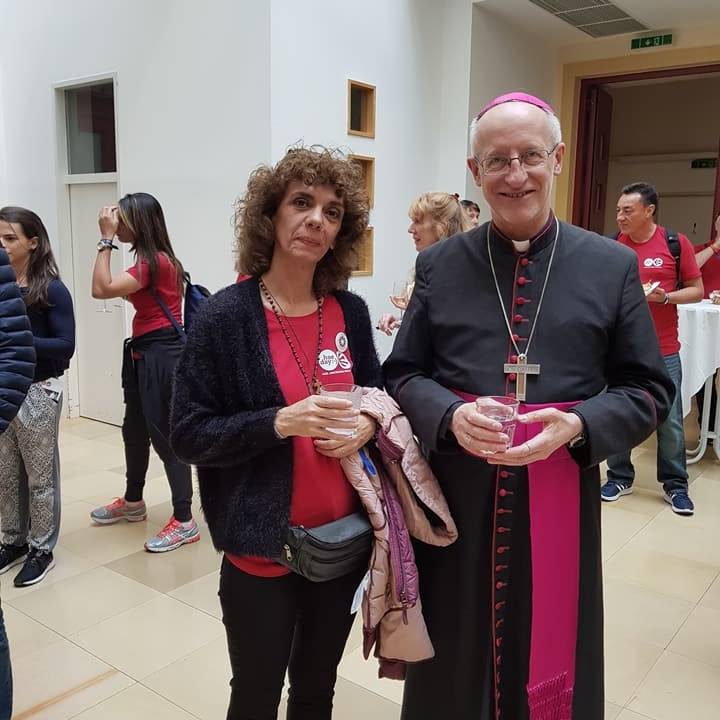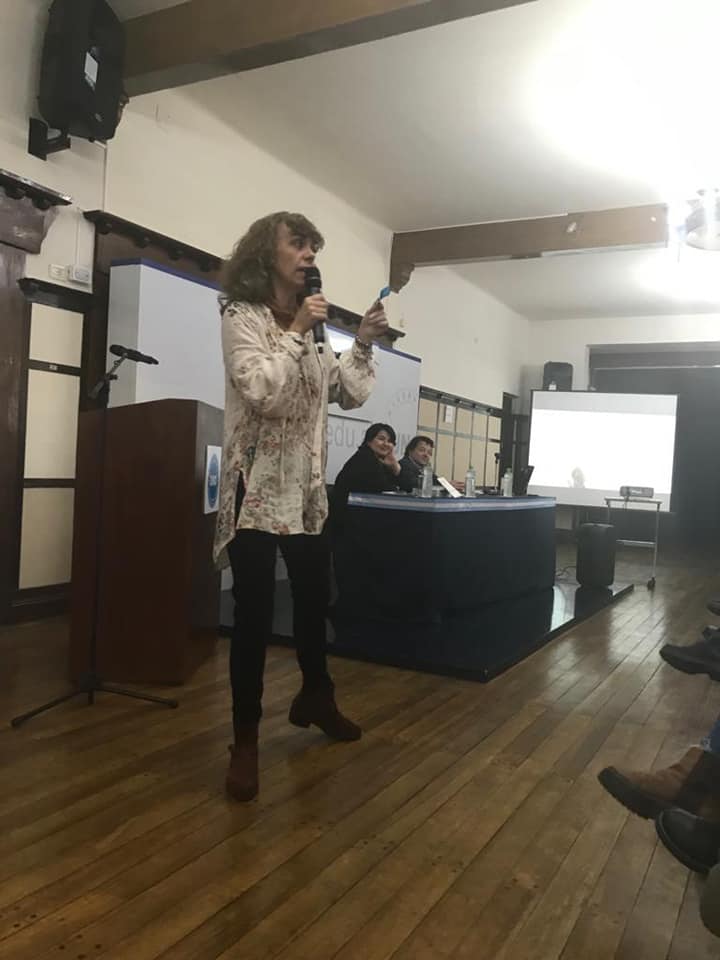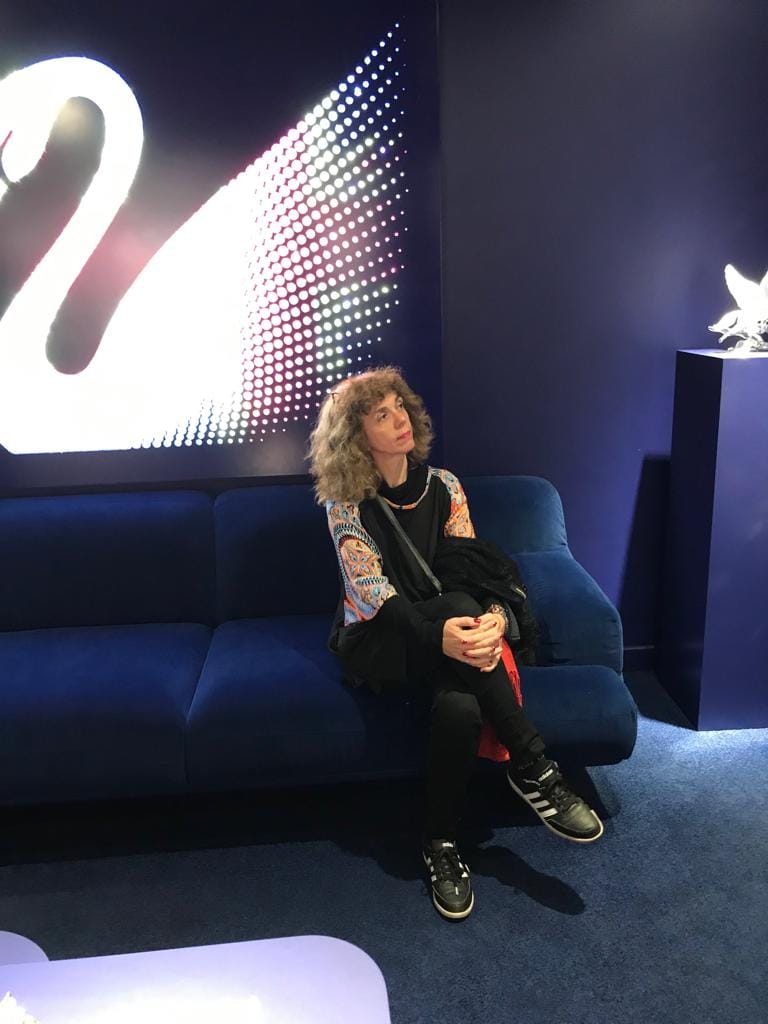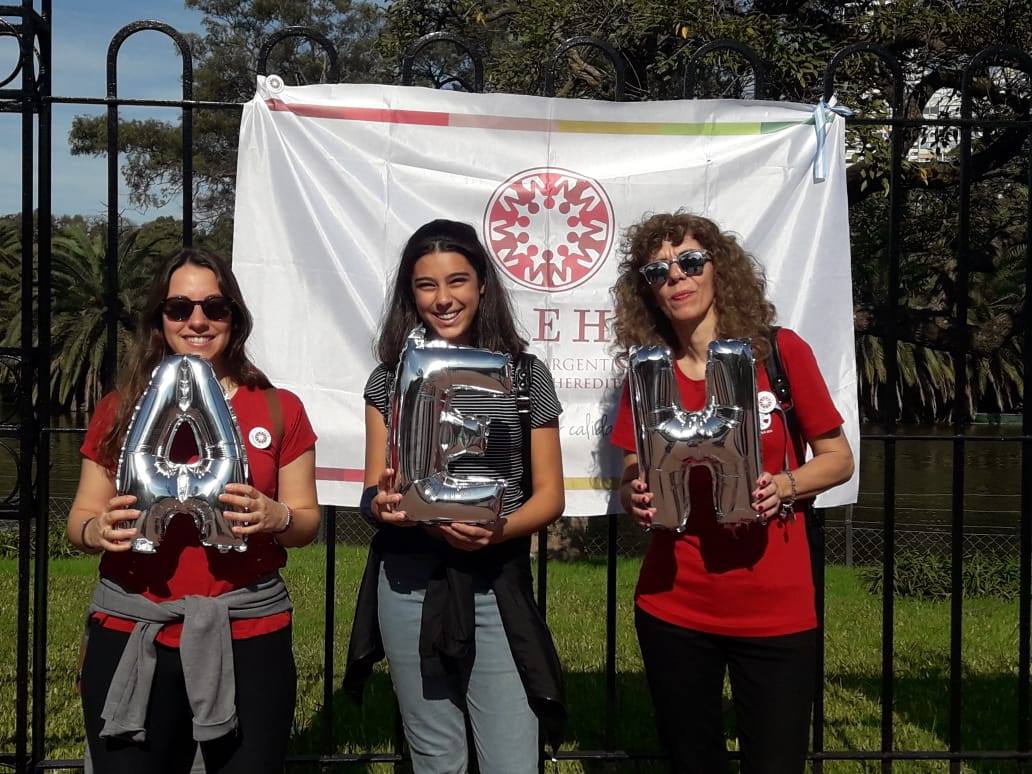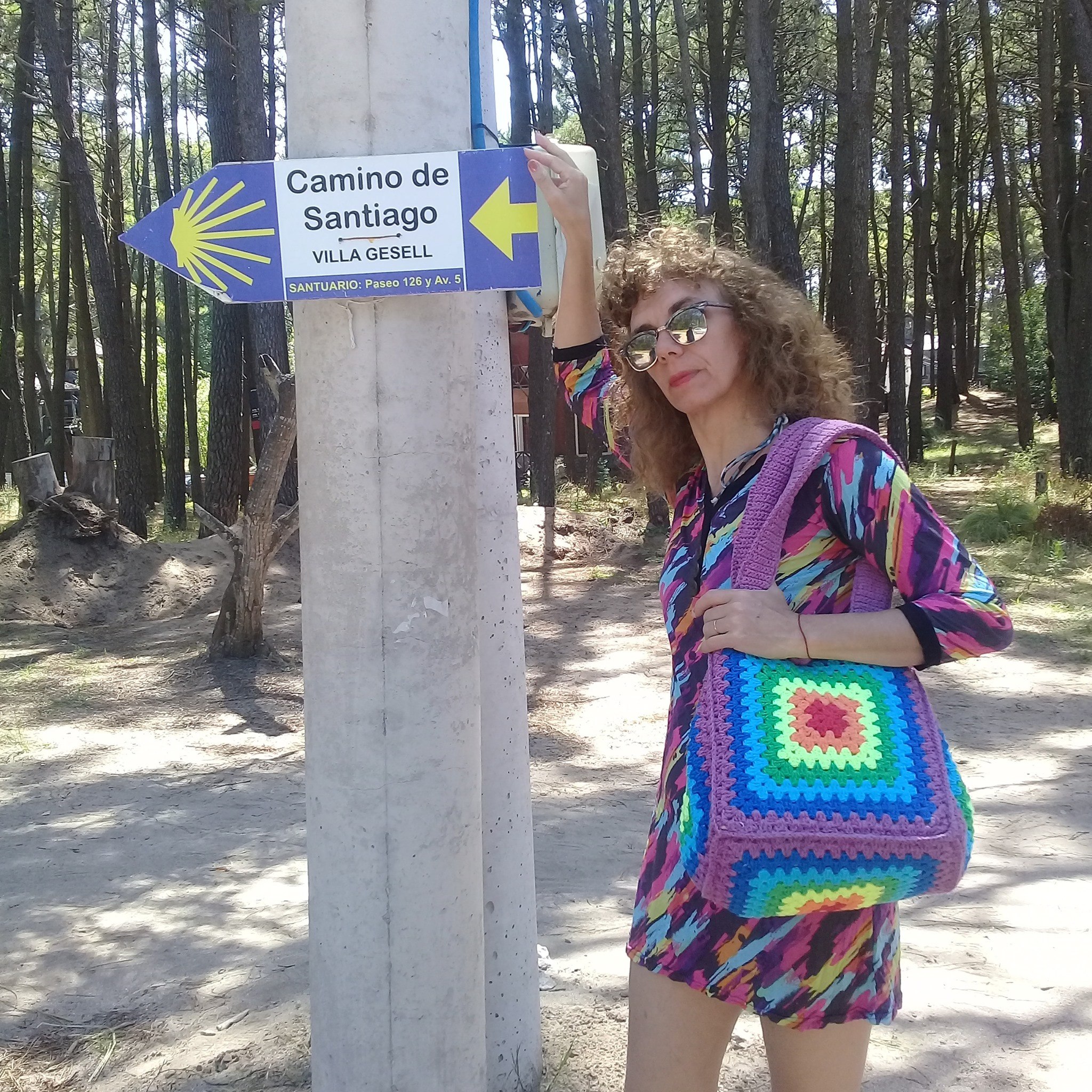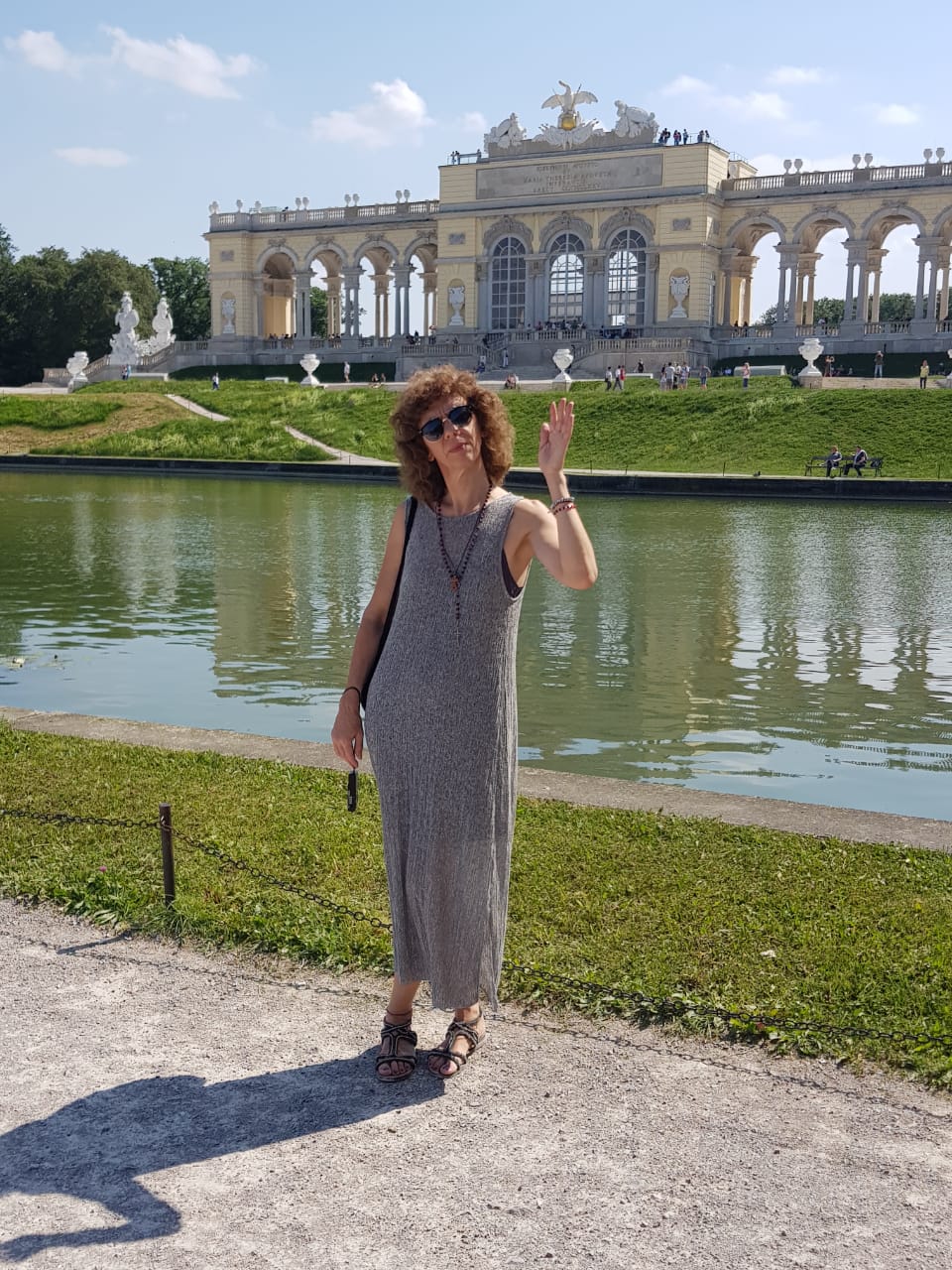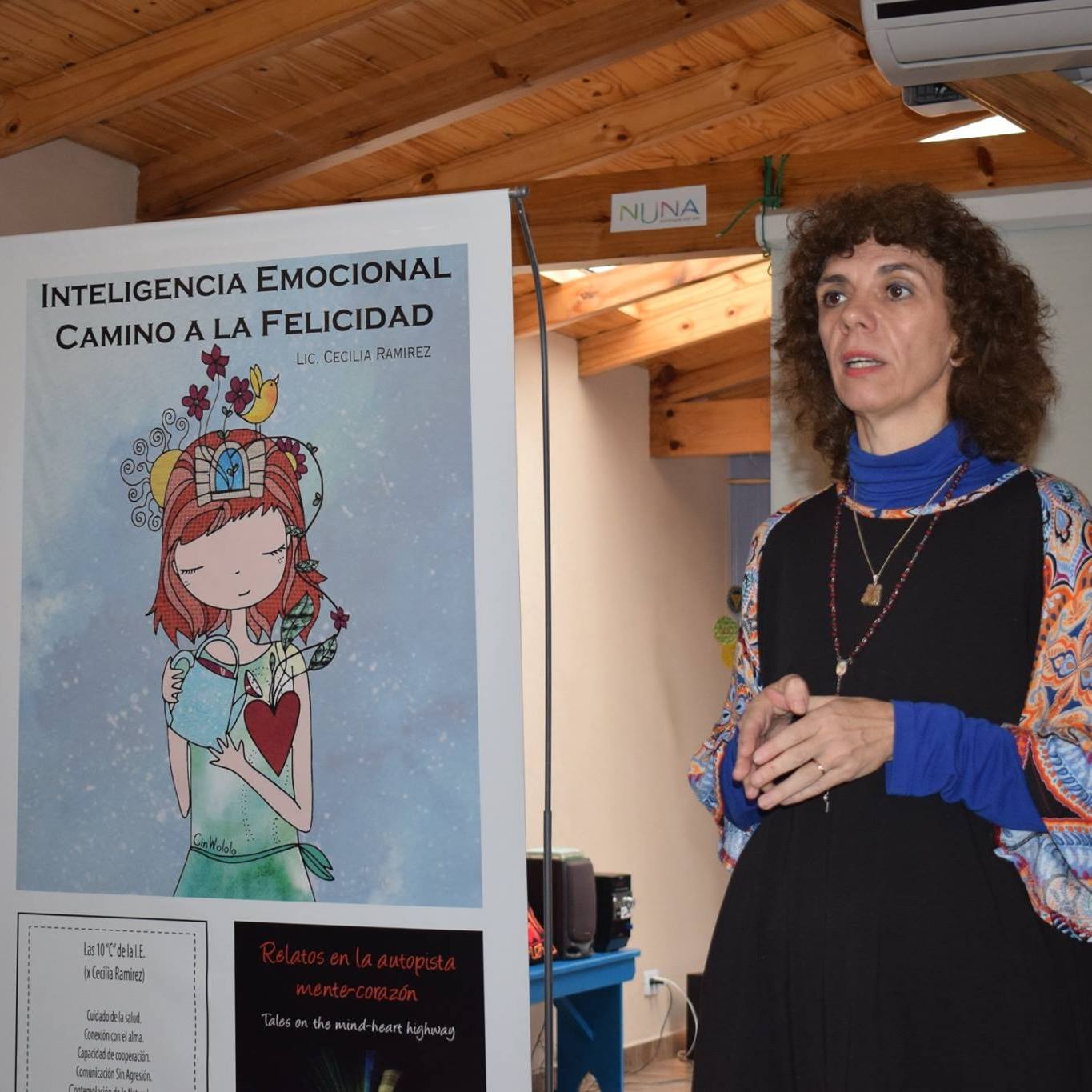Cecilia Ramirez,
Argentina (1966)
Before I was diagnosed, I went to all kinds of workshops, looking for a cure. I see now that I was searching for answers that may not have had a question.
During my adolescence, I didn’t have that many HAE attacks. My first episode was when I was 16 years old. One was in my face, and the others were confused for gastrointestinal problems, so in that sense, I guess I had quite a normal life at that point. Problems really began when I was about 24. I started to have more frequent attacks, and after I had given birth, I had attacks every week until I was diagnosed.
When giving birth, the doctors had to perform a cesarean operation because I had terrible abdominal pain. They found unusual liquid inside me and told me to look for information myself as they could not come up with a cause for this reaction. At a later point when I had a glottis crisis, I came across the website of HAE Argentina and thought that HAE might be what I was suffering from. I went to see Dr. Fabiani, who eventually diagnosed me. Actually, years before that, another doctor had asked for the same test that diagnosed me, but unfortunately, the lab results were wrong, so there was no diagnosis back then. During the 20 years or so when I wasn’t diagnosed doctors and health care professionals always said it was an allergy or nerves.
Lacking the right diagnosis, would you say that at least you met understanding from people around you?
Well, some people didn’t believe me when I said my abdominal attacks were so painful, but they are not part of my life now. I must say that most people have at least tried to understand. At work, they never said anything when I was absent due to attacks and my friends have indeed helped me a lot.
My family – that’s another story. You know, without my parents I wouldn’t be on Earth, neither would I have had the experiences I had in life. They say your soul chooses your parents, and mine chose them both. Central to my life is also my sister with whom I have shared my days since I was four years old. Above all, I must express my gratitude to my husband, whom I met in the 1980s and next to whom I have gone through life since then. He is the being who has made sure I always have my medication and who has spent many nights awake next to me, at home or in hospital, when I suffered the consequences of having HAE. He is also the man who let me fly free and with whom I have built a bond based on companionship and mutual respect.
And then there is your son – the only other member of your family with HAE.
Yes, Nicolas has inherited HAE, which makes me feel very sad as it is a legacy, I would have preferred not to pass on to him. But at the same time, my son, my life, fills me with light day after day. He gives me the strength to go on when things do not go well, and I want to transmit to him the clearest and most positive message: I hope my story of personal growth helps him not go through the things I had to undergo. He is my greatest motivation and the one who has made me feel the most unconditional and purest love of all. I expect my message to be optimistic and if someday he has to face the symptoms, I hope he can go ahead as I am learning to.
Talking about family, I will also mention my grandparents, especially Julio, who was the clearest example that one cannot change what happens, but you can change how you react to it. He didn’t have HAE but had to fight with other health problems and gave me a great example of not quitting or ever being pessimistic.
All in all, I have the greatest wealth of all: Love and friendship. My chromosome may be broken, I may not produce human esterase, but I have a great capacity to give and receive unconditional affection.
Tell me a bit about your search for knowledge about HAE.
Before I was diagnosed, I went to all kinds of workshops, looking for a cure. I see now that I was searching for answers that may not have had a question. That went on until one day I told myself I had to stop trying to escape and learn to live with what I had. It was not easy, but today I feel I may have achieved it. I do not promise that I will not feel weak sometimes, but some things are apparent to me. First of all, we have to accept what happens and take care of our quality of life. And secondly: We should collaborate with others because together we always achieve more. HAE International as well as national patient organizations around the world prove that. Maybe one day, science finds a solution. Meanwhile, we should focus our energy on our requests to get every patient a diagnosis and a treatment without difficulties. We must also remember that although we cannot change what happens to us, we can transform our reactions and how we act by facing facts. To be successful, we need to be informed and look for a physical, psychological and spiritual balance.
Is giving up the search part of the solution?
No, that is not the point. It is not about giving up. On the contrary, really. I feel that I have learnt to live and value life, to see things from another perspective – and if HAE hadn’t woken me up maybe today I would be ‘only surviving’ instead of ‘living life to the fullest’.
Could you elaborate on that?
Every day I hear healthy people complaining, literally attaching themselves because of things that are easily changed, victimizing themselves for little stuff, not realizing the time they waste doing so. If I hadn’t faced reality, I wouldn’t have learnt so much about life, death, health, sickness, love, friendship and happiness.
One day I realized that what I learnt as a teacher couldn’t be separated from what I learnt as a patient. Medicine and education have much in common. In psychology, we studied emotional intelligence and how it affects learning, and it was inevitable to see how it influence the health area. Working on emotions is crucial. In my case, it was essential to know how my emotions interacted with my disease.
In 2016 you published a book in Spanish about your experiences with HAE. You have since written it in English. Why is the book called “Heroes Appear Everywhere”?
When one has to live through extreme situations, hypervigilance grows. In the beginning, one lives life with so much uncertainty that it becomes very difficult to see things with clarity. You may spend whole days thinking ‘why’ and ‘what for’. As in a tale, the fantasy that a hero will come and take you out of your suffering appears. And there one remains sitting.
In tales, everything seems easy, but real life is another thing. It is not about kissing frogs to see if a cute prince turns up. It is about advancing along a labyrinth that sometimes is very dark and confusing, other times not so much. Unlike epic stories, there is no hero with a cape and sword but human beings who are common and go along life looking for answers. So, one day one wakes and realizes that the real heroes are each one of us and what we do with what happens to us. It is not about sitting around waiting for someone to find a cure or for a miracle to change our destiny. It is about facing the rare disease with what is called resilience.
Resilience?
Yes, that capacity you have but do not fully know about until a crisis comes, and you discover that you can overcome physical and emotional pain as well as the fear of death. This leads you to concentrate on the positive capacities and attributes more than on the pathology you suffer.
Look up ‘hero’ in a dictionary. It will most likely say that it is ‘a person admired for their deeds and virtues, a person who fulfills a heroic action’, but if we keep on researching, we can also read that on occasions the word is used to refer to ‘a person who saves others from great danger, producing a noticeable or high-profile event’. I think all and each of us may be a hero in this sense; there are heroic actions that are not seen, but they are made all the same. A doctor taking care of a patient after a 24-hour-duty, a mother next to her son as he recovers from an illness. Perhaps there are no cameras on, but many people in their daily work display virtues and do deeds that maybe others do not recognize or understand.
Sometimes, ignorance is such that it takes you so long to find the right way that although you do not leave your country as an exile, you may possibly exile at home, on the road from clinic to clinic – and once you learn to deal with treatments and to face you own ghosts you may return strengthened. As regards morphology, those who suffer from HAE know that in our DNA, there is a ‘failing’ chromosome, an uncommon one. Out of the ordinary. Maybe it is not like the heroes in movies, but when we make the decision, we start doing singular things in our search for better health and a better quality of life.
Do you have a personal experience with someone you’d call a hero?
Often reaching a diagnosis is a slow and difficult process, above all if there is no medical record of the disease in your family. That’s where the hero might turn up. In my case, it was in the form of HAE Argentina and its President, Alejandra Menendez. To me, she is a true heroine as she one day decided to form the patient association that she still presides to fight for a better quality of life for Argentinians with HAE. And even though she says that she only started it and that patients help her, those who collaborate with her as best we can, know Alejandra is a pillar in this fight because she is working nonstop to help us all to live better lives.
Being a hero – or heroine – also has to do with courage, hasn’t it?
For sure. Courage to face life is one of the most obvious characteristics of a hero, but you couldn’t call someone a hero if everything scared you or if you didn’t go through any adventure. The hero always has enough courage to face life problems and her or his own destiny. People with rare diseases know what fear is. Fear of a crisis, fear of not getting the medication or having enough money or a proper insurance for the medication they need, fear of their kids inheriting the disease, fear of the unpredictability they face day after day. That is why they learn to live a day at a time – and little by little, they find the courage that they need to face the present and have some adventures on occasions. They are afraid of going far from home or not getting someone to help them if they don’t feel well. Other times, if they haven’t found the cause of the swellings, they feel afraid of being hospitalized not knowing what is happening. But, little by little, and with your diagnosis in hand and the medication in your refrigerator or bag, you find the courage. And then you risk going ahead step by step.
It is said that if after the battle, the hero returns home, he doubts the pre-established values, the social order and he can, directly or indirectly, change or break those rules to improve society. We can compare that to the time when patients get together to fight for their rights, to demand a better quality of life.
So, patients resemble heroes?
Not only do patients resemble heroes, but also their families as they stay by them and help them get through hard times. That shows love, patience, understanding and empathy.
Speaking of heroes, we mustn’t forget the doctors who devote time to investigate and treat us. Those doctors who give their mobile phone number to their patients and are available 24 hours a day, seven days a week, 365 days of the year. HAE made me go through hard times but also led me to meet excellent doctors and nurses with great vocation – there is good reason to thank each of them for their work, support and understanding.
Are you a heroine?
Maybe I am an oyster? A colleague once said that she imagined I was like an oyster in which a grain of sand – here in the form of HAE – had entered and it had become my pearl. I think she might be right. My life changed a lot and, despite what happened, I can say that I have learnt so much looking for a way out that perhaps I wouldn’t change what happened to me if I had the chance. I suffered for a long time. I complained and asked ‘why me’, ‘why my son’ – but I think that I do not need to know the reason as I found it. The pearl.
You mentioned HAE Argentina. Are you involved with the organization?
Yes, all the time I try to help Alejandra as much as I can. I go to the meetings she asks me to attend, I help organize events, and if a patient needs to talk, I’m always ready to help.
Together with fellow patients from Argentina, I participated in the 2018 HAE Global Conference in Vienna, Austria. I learnt a lot, apart from meeting so many people from around the world who made me feel less alone with my condition. It was also great to meet and listen to so many professionals.
Indeed, the people of HAE Argentina – all the patients and their relatives I have met – have been important for my evolution when facing HAE. We share something maybe only we can fully comprehend, and I’d like to think that they know that they can always count on me.
Please feel free to download Cecilia’s book in English or Spanish.


